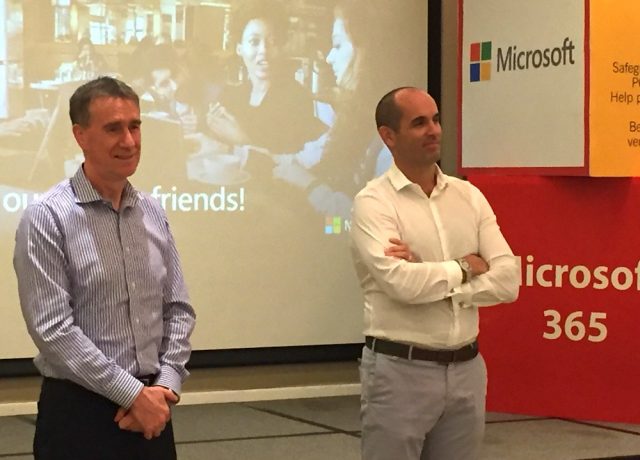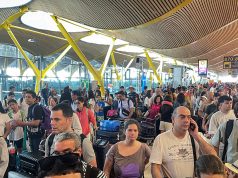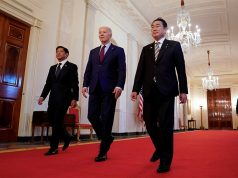
MANILA, PHILIPPINES — Organizations need to foster a new culture of work to achieve digital transformation success as a result of a changing face of the workforce in the Philippines, this according to a recent Microsoft study.
Half of the respondents polled felt that more can be done by their organizations to invest in culture development.
“The rise of digital technologies, along with a new generation of millennials entering the workforce, has brought about a need to address changing workers’ expectations, knowledge and skills, as well as the tools they use, said Cian O’Neill, Microsoft Philippines chief operating officer and chief marketing officer. “And with more than half of the world’s millennials residing in Asia, the workplace will need to transform to adapt to the technology habits of these digital natives. In addition, due to deployment of advanced and emerging technologies, organizations need to relook at reskilling its workforce to develop creative and strategic skills for the future.”
In the same study, around 86% of business leaders in the Philippines acknowledge the need to transform into a digital business in order to succeed, people are ultimately the main drivers of digital transformation.
“People are at the heart of digital transformation. Their expectations, knowledge and skills, as well as the tools they use for work, are determining factors in the level of transformation that any organization can achieve, said Bertand Launay, Microsoft Philippines newly-appointed managing director. “The challenge that they face now is how to implement new ways to foster a modern culture of work to better empower Asia’s workers, especially those at the frontline. By estimates, there are two billion firstline workers globally, and make up majority of our workforce today,”
Also in the study, Microsoft found the following factors influencing the culture of work in the Philippines today:
– Increasingly mobile workforce and exposure to new security risks: The rise of mobility and proliferation of mobile and cloud technologies have resulted in individuals working across multiple locations and devices. In fact, the Study found that only 21% of respondents are spending all of their work hours in the office, and 81% of respondents are working off personal smartphones. The latter raises new security challenges for organizations.
– The rise of diverse teams: The Study found that 29% of workers in the Philippines are already working in more than 10 teams at any one point in time. With the BPO industry being significant in the country, more workers are working with different and even virtual teams from different locations. This makes the availability of real-time insights and collaboration tools crucial to get work done.
– Gaps in employees’ digital skills even as leaders are in the motion of embracing digital transformation: As the bar is raised with new technologies adopted across industries, deployment is uneven. In fact, 47% of respondents feel that more can be done to bridge the digital skills gap among workers.
And to address this new work new work culture for digital transformation success organizations must unlock the potential of employees, and elevate their workforce, especially firstline workers:
Unlocking employees’ creativity : Collaboration fuels innovation through sharing of ideas and enables flexibility in how people work through a connected experience, while working seamlessly across devices. However, the Study found that majority of respondents feel restricted in the way they work today, with 64% highlighting that they needed to be physically present in office as equipment or tools used for their line of work is only available in the workplace.
Fuelling teamwork: By equipping all workers with a universal toolkit for collaboration, organizations offer its people choice and ownership as to how they work together and collaborate in real-time. In fact, the Study found that one in two workers highlighted that access to technology for collaboration such that they can respond in a timely manner to internal and external requests was important in their line of work.
Strengthening security: Today, 74% of respondents are working on employer-issued PCs, but 81% are also working on personal smartphones, which underscores potential security risks. In fact, 76% of respondents admitted to checking personal emails on company-issued devices, and are doing so for convenience sake. Therefore, leaders need to strengthen their security not to put organization’s confidential data at risk to address the need for workers to work without barriers and without impeding productivity.
Bringing simplicity : With the rise of apps, devices, services and security risks in the workplace, there is a need to streamline the IT management, break down service siloes so that disparate data can be combined and reasoned in new ways and reduce complexity. In fact, a Microsoft Asia Pacific IT leaders study found that 61% of ITDMs from the market agreed that there is a need to reduce complexity of managing their existing IT security portfolio.
“We believe that every worker – from the factory floor to the front desk, to the executive boardroom – can contribute to an organization’s collective endeavours. It is our view that involving firstline workers in digital transformation will drive unprecedented opportunity – for workers, the organizations that they work for, and the industries and society at large,” said O’Neill. “At Microsoft, we see the opportunities that can be unlocked with technology by equipping firstline workers with the right tools, such as Microsoft 365. Ultimately, digital transformation projects can only succeed if the right tools are in place for workers to leverage and maximize upon.”
With this regard, Microsoft has announced the expansion of Microsoft 365, including Microsoft 365 F1, which provides purpose-built capabilities that help foster firstline culture and community, train and upskill employees, digitize business process, deliver real-time expertise, and minimize risk and cost. New intelligent search capabilities, a vision for intelligent communications centering on Microsoft Teams, and security and IT management enhancements to help customers stay secure and compliant.
“With cloud-based productivity tools being a key pick among Asia’s mobile workers to drive greater collaboration among teams, we urge organizations to take the opportunity to evaluate Microsoft 365 as an option to modernize their workforce.” O’Neill.









